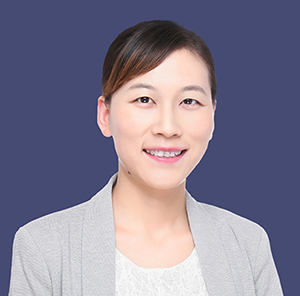Department of Epidemiology
Learn how we advance public health globally by researching the frequency, distribution, and causes of human disease, and shaping health policies and practices.
677 Huntington Avenue
Kresge, 9th Floor,
Boston, MA 02115
New Faculty Q&A: Yuan Ma
January 1, 2023 – We are thrilled to welcome Yuan Ma as Assistant Professor of Epidemiology. Ma was previously a postdoctoral research fellow in our department. Learn more about Yuan Ma in the following Q&A:

To me, epidemiology is more about philosophical thinking than a specialized discipline.
What led you to epidemiology? What is it about the field that attracts you?
I very much enjoyed playing with numbers and solving mathematical problems when I was a kid. Following the career paths of several family members, studying medicine and becoming a doctor also seemed a natural choice to me. When I did my medical training in preventive medicine, I came across epidemiology, which offers a beautiful way for me to combine my two pursuits and make a difference to the science of medicine through doing the work I enjoy most, and I think I made the right choice.
To me, epidemiology is more about philosophical thinking than a specialized discipline. Epidemiology attracts me most in that it revives and evolves with rapid advances in medicine and technology, providing a fascinating and powerful causal framework with large space to mix with diverse disciplines and cutting-edge techniques that allows us to solve challenging public health problems more effectively. The charm of Epidemiology also lies in its highly collaborative nature. It is truly collaborative science to be an epidemiologist and it is a fun journey to get to know wonderful researchers and people with diverse expertise and perspectives.
Can you tell us a little about your research background? How did you get started in your current field?
I did my medical studies in Preventive Medicine at Tianjin Medical University in Northern China. With a strong desire to pursue advanced methodologic training to improve population health through effective prevention, I continued my PhD training in cardiovascular epidemiology and biostatistics at Peking University with joint PhD training at Queen Mary University of London in cardiovascular medicine. My PhD studies focused on developing effective intervention strategies to prevent hypertension and cardiovascular disease in randomized trials and policy modeling studies. Recognizing the rising tide of dementia cases worldwide, I extended my training focus to aging research during my postdoc training at the Harvard T.H. Chan School of Public Health. Building upon my training and research trajectory over the last decade in preventive medicine, cardiovascular epidemiology, and aging epidemiology, I found my passion in unraveling how cardiovascular disease and dementia intersect in the life course and how vascular factors contribute to brain aging and dementia, and this forms the focus of my research program over the next five years.
What questions/problems are you working on that you are most excited to explore?
I am most excited to explore how subclinical cardio- and vascular changes cause damage to the brain and lead to the development of stroke and dementia, what biomarkers can be used to detect these abnormal changes in the brain early in the disease course, and what risk factors can we modify during critical time windows to prevent aging-related brain diseases. I am also very much interested in further characterizing the methodological issues in aging epidemiological research and contributing to related methodology development. My team will try to answer these exciting questions using multidisciplinary approaches, including the incorporation of neuroimaging, neuropathology, and multi-omics techniques into epidemiological studies.
What plans do you have for the first few years of your new role as assistant professor at the Harvard Chan School?
In my new role as an assistant professor, I plan to build an independent research program on the epidemiology of brain aging, with a focus on the prevention of dementia and stroke using multidisciplinary approaches. I am very excited to strengthen and expand my collaborations with colleagues within our department, the Harvard Chan School, and the Harvard community and facilitate departmental engagement in these areas. I will also contribute to expanding our educational program on aging epidemiology in my teaching and advising activities and I very much look forward to working with our students and trainees and helping them achieve their learning goals in aging epidemiology and related areas.
Can you tell us one thing (e.g hobbies/interests) that colleagues may not know already about you?
Outside of work, I very much enjoy silly play with my young daughter, outdoor jogging, and reading.
– Coppelia Liebenthal